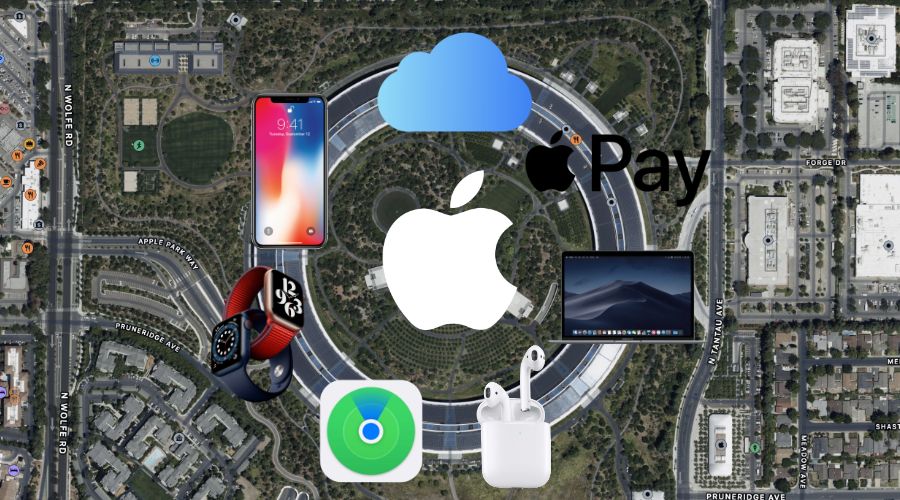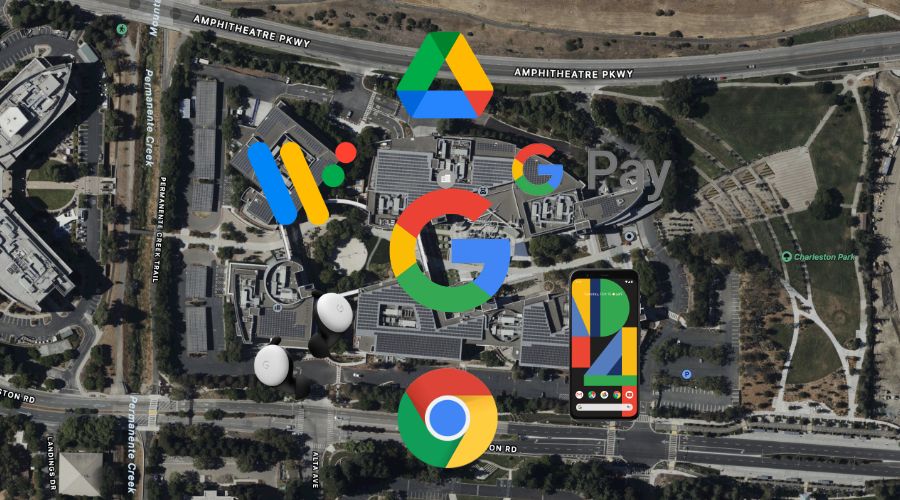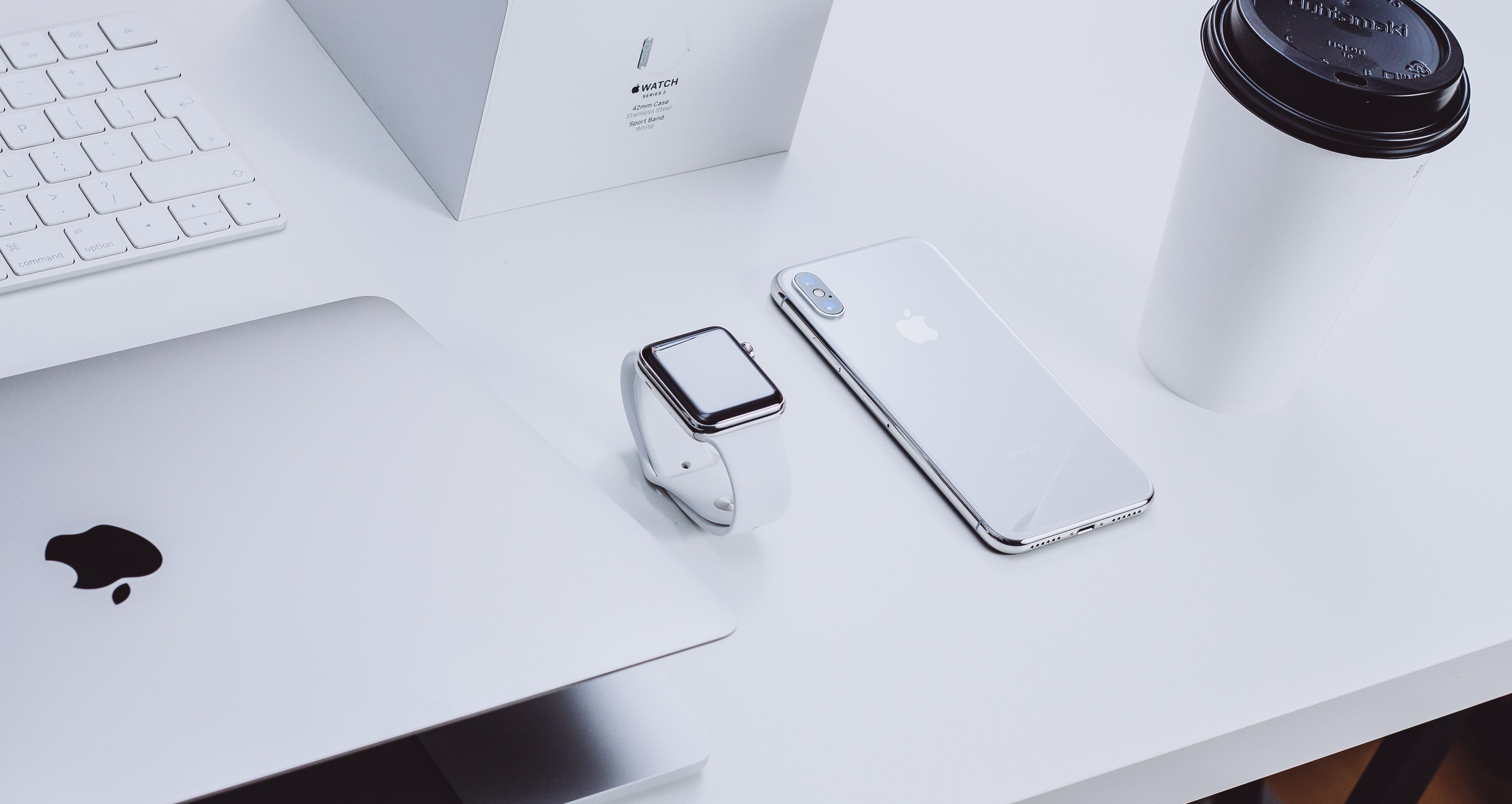The debate between Android and iOS has been going on for years. But now the choice is much harder–you have to pick an ecosystem. Google and Apple both have some pretty comprehensive ecosystems, and they're only set to improve and expand in the coming years.
Ecosystems have been considered “walled gardens” and, while pessimistic, this is a fairly appropriate analogy. With the walls only getting higher, the time to pick an ecosystem is now. Soon, it'll be too hard to switch from one to the other. Here, we'll take an in-depth look into why this is.
Why It's Hard to Switch From Apple and Google's Ecosystems Now
Recently, I was switching from an iPhone to a Galaxy Z Flip 3 review unit. I've used Android before, and I still use lots of Google's tools, so I'm not completely unplugged from the ecosystem. But it was a major inconvenience, and it took forever.
Passwords saved to iCloud Keychain don't sync to the Android device. The device doesn't know which apps to download without an additional tool. Cards for mobile payments can't be switched over. And the list goes on. It just takes such a long time, and is a major inconvenience to switch between the ecosystems. But why?
Why Is It Hard to Switch Ecosystems?
Currently, it's so hard to switch ecosystems due to the lack of cross-platform compatibility. Each company makes its own software, and these aren't compatible with the other. For example, if you use iCloud Keychain you can't natively access this on Android, and if you use Google's Password Manager, you can't natively access it on iOS.
The lack of cross-platform compatibility isn't necessarily a downside. It allows the companies to make a much better product of its own operating system. Besides, not that many people switch ecosystems, and it's another convenience factor to keep customers using your product. That's what businesses do.

At this point, you can become so entrenched in one ecosystem that it becomes hard to switch over to the other. If you've got all your passwords in iCloud Keychain, all your files in iCloud Drive, an Apple Watch, AirPods, and an Apple Card, it's nigh on impossible to switch to Google's ecosystem.
Your AirPods and Apple Watch wouldn't function properly with an Android device, so you'd need to buy new accessories. You'd have to manually download and re-upload gigabytes worth of storage. And you wouldn't be able to manage your credit card.
Of course, the same applies to Google and Android products. It would be just as difficult to use a Wear OS watch and Pixel Buds on an iPhone, and just as inconvenient to move your passwords from Chrome Passwords, and files from Google Drive.
What's more, it comes down to the little features as well. If you're used to AirDropping files between your iPhone and Mac, you can't take this to the Google ecosystem. The way you send friends money changes, you have to re-add all your cards for mobile payments, and even the way you text fundamentally changes.
What Products and Services Do the Ecosystems Currently Consist Of?
Apple's ecosystem consists of all its hardware products, and each of its software products too. This includes some of the fairly obvious products, such as the iPhone, Apple Watch, and Xcode, all the way to some software that might not immediately spring to mind such as iCloud Keychain and Apple Card.
Google's ecosystem works in much the same way; it consists of each of its hardware and software products. As Android is owned by Google, this includes all Android devices, as well as Drive, Chrome Passwords, and Google Pay.

Both companies offer email, document, and cloud storage solutions, namely: iCloud, Gmail, Docs, Pages, Google Drive, and iCloud Drive. While these are definitely part of the ecosystem, they are cross-platform compatible. You can access both cloud storage drives from a device in the other ecosystem. However, switching from each service in one ecosystem to the other's proves very challenging.
Why It Will Be Harder to Switch From Apple and Google's Ecosystems Soon
As we've seen, it's already pretty hard to switch from one ecosystem to the other. Bad news–it's only going to get harder. When it comes to what the ecosystems will consist of in the future, the truth is that we don't know. Nobody does, except maybe Tim Cook and Sundar Pichai.
But we can be sure that the ecosystems are continuing to expand. Any time one of the companies launches a new product or service, it becomes part of the ecosystem. It's one more device you have to physically replace, or manually move your data from.
We know both companies are exploring further payment solutions in the credit and current account areas, and Apple already has its own credit card. Both companies are working on cars, be it self-driving or electric. Both companies either already have, or are working on AR or VR products. And Apple's even looking into its own search engine.
At the point when you're driving an Apple Car, using an iPhone, tracking workouts on your Apple Watch, working from your MacBook, paying using your Apple Card, managing said card with your Apple Current Account, searching with the Apple Search Engine, storing passwords, 2FA codes, and files in iCloud, and playing on your Apple Glasses; it becomes far too hard to switch. Or replace Apple with Google, and you're in Google's future ecosystem.
Of course, the above example is speculative and perhaps slightly hyperbolic, but you get the point. When Apple and Google both offer such extensive ecosystems you become entrenched in, it will be extremely hard to leave one for the other.
How to Choose Which Ecosystem to Use
When it comes to choosing which ecosystem to use, you've got a pretty easy decision ahead of you. Quite simply, you should choose the ecosystem you already use the most.
Everyone ends up naturally falling into an ecosystem, one way or another. If you find yourself primarily using Apple products, stick with Apple's ecosystem. And vice versa for Google's ecosystem.
If you are considering switching, there are a couple of points to consider. Primarily, you should pick an ecosystem based on which products and services you like the best. If you prefer iOS to Android, go with Apple. You'd hate to be stuck using an ecosystem you don't like.

Another important point to consider is the fact Google's ecosystem offers a lot more choice when it comes to hardware. Google's ecosystem consists of all Android and Wear OS devices, made by any manufacturer. So naturally, you've got many more options to pick from when it comes to devices.
If you're using a combination, I wouldn't panic. Productivity software like Docs, Pages, and the Drives are unlikely to stop being cross-platform any time soon, just like the music apps. These services are independent money-makers, so it only makes sense to keep them open to as many people as possible.
The Ecosystem You Use Is About to Be Your Biggest Decision
As Apple and Google's ecosystems continue to expand and technology becomes more intertwined with our day-to-day lives, picking which ecosystem you use is going to change how you live your life.
It could soon be the biggest decision you have to make, up there with whom you vote for. Pick wisely because it'll be too hard to switch.
![How to Find IMSI Number on iPhone [Helps with iOS Unlock][Updated] data:post.title](https://blogger.googleusercontent.com/img/b/R29vZ2xl/AVvXsEjLjHwhnfUXNJTuiylqmlurhLRVAEVi803j6xcnvN8EZwF5_XUynz1y0Ko-vwpx6O3nT5hogTELahedGzgQpXM5Y99fcBliinyBu8ACw8_DVV3FpPLkIqR0u7v_HM39rAkpV5MyJiG1h5s/s72-c/find+imsi+iphone.jpg)